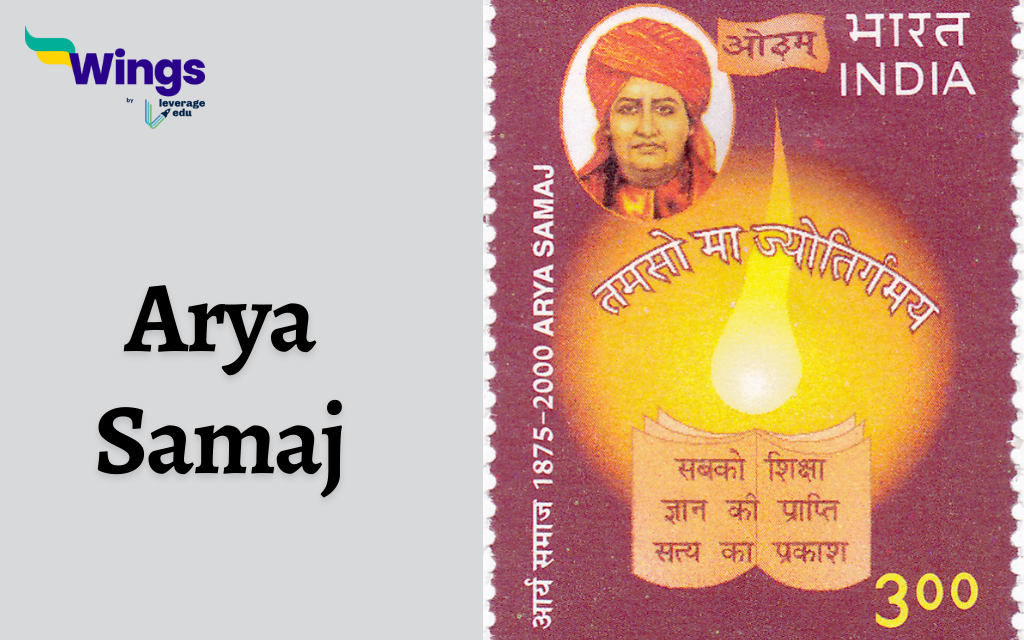Arya Samaj was a monotheistic Hindu reform movement which was known to promote ideas and behaviours based on the indisputable ideas and principles of the Vedas, the ancient scriptures of Hinduism. Founded by Swami Dayananda Saraswati in 1875, it aimed to reform Hindu society by advocating for monotheism, social equality, and the eradication of social evils. In this article, we will delve into the history, founder, features, significance, and controversies that are surrounding Arya Samaj.
Contents
What is Arya Samaj?
It was the first reform movement to engage in proselytizing and was a progressive spiritual movement that originated in India during the late 19th century. Founded by Swami Dayanand Saraswati, it sought to revive the ancient Vedic teachings and promote social reforms. The followers of the samaj were against idolatry and believed God to be supreme. For them the ultimate source of knowledge are Vedas. They even promoted women’s equality and fought to end widow remarriages. They also educated people through Vedas and outlawed polygamy, Sati and child marriage.
Arya Samaj was founded by?
In 1875, Swami Dayanand Saraswati founded Arya Samaj in Bombay (now Mumbai), India.
- Swami Dayanand was a renowned scholar and spiritual leader who aimed to reform Hindu society by promoting the ideals of the Vedas.
- Arya Samaj gained popularity due to its focus on rationalism, abolition of idol worship, promotion of Vedic education, and eradication of social evils.
- Swami Dayanand Saraswati was born as Mool Shankar in 1824 in Gujarat and was the driving force behind the establishment of Arya Samaj.
- Inspired by the Vedic scriptures, Swami Dayanand devoted his life to the study and propagation of Vedic knowledge.
- He challenged prevalent superstitions, blind faith, and social inequalities, advocating for a society based on reason, scientific temper, and social justice.
Also Read – Social Reformist Jyotiba Phule: Biography, History, Facts
What were the features of Arya Samaj?
- Monotheism: Arya Samaj firmly champions the belief in one supreme God (Brahma). It rejects idol worship and polytheism prevalent in Hinduism.
- Emphasis on Vedics: The Vedas hold the utmost authority in Arya Samaj. Its followers interpret the Vedas in a rational and scientific manner, focusing on moral and ethical teachings.
- Social Reform: The Samaj advocates for social equality, the upliftment of women, opposition to child marriage, and the eradication of social evils such as untouchability and the caste system.
- Education: Education is central to the Samaj’s mission. It emphasizes the importance of education for all, both men and women and promotes the establishment of schools and colleges.
- Sanskrit Promotion: It encourages the study and propagation of Sanskrit, the ancient language of the Vedas, to preserve and spread Vedic knowledge.
- Shuddhi and Sangathan: Arya Samaj promotes the purification (shuddhi) and reconversion (sangathan) of individuals who wish to return to the Vedic fold.
What were the principles of Arya Samaj?
The principles of the Samaj are –
- True knowledge only originated from God.
- God is alone worthy of being worshipped as it is existent, merciful and blissful with intelligence and being-less.
- The scripture of true knowledge is the Vedas. It is one’s duty to teach, hear, recite and read them.
- Dishonesty should be given up and we must be ready to accept the truth.
- Deciphering right and wrong first and then, following the path of Dharma.
- It promotes social and physical good for everyone.
- Righteousness, Justice and Love should be the guide and conduct for all.
- Promote knowledge and dispel ignorance.
- Should work for the welfare of all and not be selfish.
- Follow the rules of society and for its well-being.
Also Read – Brahmo Samaj: Founder, History, Significance
What was the Significance of the Samaj?
Arya Samaj played a significant role in the Indian freedom struggle, inspiring nationalists and reformers to fight against colonial oppression.
- It contributed to the revival of Vedic knowledge, promoting a scientific, logical, and progressive approach towards spirituality and social welfare.
- The Samaj’s emphasis on education and social reforms paved the way for the upliftment of marginalized sections of society.
What were the Controversies and Criticisms?
The Samaj faced opposition from orthodox religious groups due to its reformist views and the rejection of certain religious practices.
- Some critics accused the Samaj of performing the Shuddhi Movement against those Hindus who were corrupted by other religions.
- Swami Shraddhananda, a prominent leader of Arya Samaj was assassinated in 1926. This event sparked communal tensions and strained relations between different religious communities.
Also Read – Raja Ram Mohan Roy, the Modernist Reformer of India
Facts about Arya Samaj UPSC
- Arya Samaj played a significant role in shaping modern Hindu wedding rituals, promoting simplicity, and discouraging extravagant celebrations.
- Prominent figures such as Mahatma Gandhi, Lala Lajpat Rai, and Vinayak Damodar Savarkar were influenced by Arya Samaj’s philosophy and actively supported its cause.
- The Samaj has numerous educational institutions, including schools, colleges, and universities, that follow the principles of Vedic education.
- The Arya Samaj movement expanded beyond India, establishing branches worldwide, particularly in countries with large Indian diasporas.
Relevant Blogs
| Widow Remarriage Act | Ishwar Chandra Vidyasagar |
| Indira Gandhi | Swaraj Party |
| Peasant Movements | Kiran Bedi |
| Morley-Minto Reforms | Gandhi Irwin Pact (1931) |
| Bengal Partition | Birsa Munda |
We hope you liked our blog. If you want to read more articles like this you can visit our general knowledge page on Indian History!


 One app for all your study abroad needs
One app for all your study abroad needs












 60,000+ students trusted us with their dreams. Take the first step today!
60,000+ students trusted us with their dreams. Take the first step today!